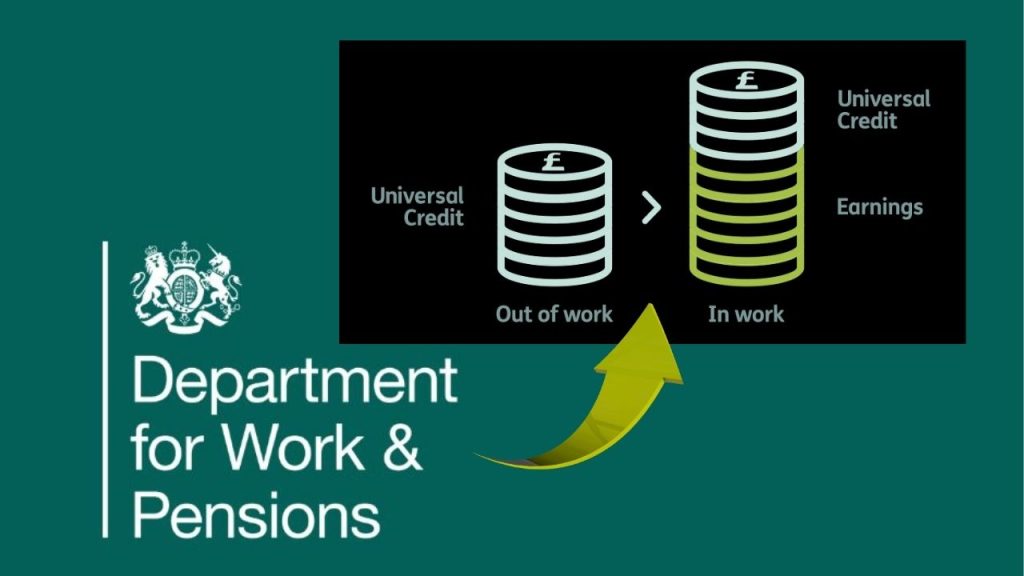Universal Credit (UC) is a crucial financial support system in the UK aimed at helping millions of people with low income or those out of work. Many claimants are unaware that their Universal Credit payment can be significantly increased through a range of add-ons and boosts tailored to their specific circumstances. Some individuals receive additional hundreds of pounds each month, which can greatly improve their financial stability.

This detailed guide explains what Universal Credit is, breaks down the key components affecting your payment, and provides a full list of add-ons and boosts that could maximize your monthly amount. We also cover important upcoming changes, eligibility, practical steps to apply, and answers to common questions. Whether you’re a first-time claimant or have been claiming for years, this article will help you understand and access the full support available to you.
Universal Credit Boost
| Add-On / Boost | Amount (Monthly/Annual) | Eligibility / Notes |
|---|---|---|
| Standard Allowance | £400.14/month (single, 25 or over) | All claimants; varies by age, couple or single |
| Upcoming Uplift (2026) | Additional £725 per year phased in by 2029–30 | Applies to single adults 25+; phased increase over 4 years |
| Debt Repayment Deduction Cap | Maximum 15% deduction (previously 25%) | Applies to UC deductions for debt repayments |
| Limited Capability for Work and Work-Related Activity Element | £423.27/month | For claimants with limited capability for work |
| Carer’s Element | £201.68/month | For those caring 35+ hours weekly for someone eligible for disability benefits |
| Childcare Costs | Up to 85% of eligible costs, max £1,031.88 (1 child), £1,768.94 (2+ children) | Must be working and using registered childcare providers |
| Housing Costs Element | Variable, based on rent and service charges | Helps with housing costs such as rent |
Universal Credit is a flexible and comprehensive support system with many vital add-ons and boosts beyond the basic payment. By understanding the various elements, including childcare help, housing support, disability benefits, and upcoming changes like allowance uplifts and reduced deduction caps, claimants can increase their payments by hundreds of pounds monthly.
Staying informed, reporting changes promptly, and applying for all eligible add-ons will help you maximize your Universal Credit benefits. Always use official resources and consider seeking advice if you have questions or complex circumstances.
What is Universal Credit?
Universal Credit is a monthly payment from the UK government to help cover living costs. It replaces six older benefits including Child Tax Credit, Housing Benefit, Income Support, and Jobseeker’s Allowance. Instead of receiving multiple different benefits, claimants get a single monthly payment that adjusts according to their circumstances and income.

Your Universal Credit total consists of a standard allowance plus extra amounts called elements or add-ons. These depend on factors such as having children, housing costs, disability status, or if you care for someone with a disability.
Breaking Down Your Universal Credit Payment: The Core Components
1. Standard Allowance
Everyone who claims Universal Credit receives a standard allowance, which varies according to age and household makeup:
- Single and aged 25 or over: £400.14 per month
- Couple (one or both 25 or over): £628.10 per month
- Single and under 25: £316.98 per month
- Couple both under 25: £497.55 per month
These rates are current for 2025/26 and are set to increase gradually beginning in 2026, adding approximately £725 per year to the allowance for single adults aged 25 and over by 2029/30.
2. Child-Related Additions
If you have children, you may receive additional monthly amounts:
- First child born before 6 April 2017: £339.00
- First child born on or after 6 April 2017, or second and subsequent children: £292.81
- Disabled child addition ranges between £158.76 and £495.87 depending on the child’s disability severity
3. Childcare Costs
If you work and pay for registered childcare (nurseries, childminders, after-school clubs), UC can cover up to 85% of your childcare costs, capped at:
- £1,031.88 per month for one child
- £1,768.94 per month for two or more children
4. Health and Disability Add-Ons
Additional amounts support claimants with health challenges or caring responsibilities:
- Limited Capability for Work and Work-Related Activity element: £423.27/month
- Carer’s element (requires providing at least 35 hours a week caring for someone receiving qualifying disability benefits): £201.68/month
5. Housing Costs Element
Universal Credit includes support for housing costs such as rent or certain service charges. The amount varies depending on your rent amount and the housing allowance rates applicable in your area.
Recent and Upcoming Changes to Universal Credit That Could Boost Your Payments
- Phased Allowance Uplift from 2026
Starting in April 2026, the government plans a phased increase to the standard allowance of up to £725 annually for single adults aged 25 and over, to gradually boost income in line with or above inflation. - Debt Repayment Deduction Cap Reduced to 15% from April 2025
Previously, deductions for debts like loans or overpayments could reduce your UC by up to 25%. This cap will reduce to 15%, allowing most claimants to keep more of their payments. On average, claimants will gain roughly £420 more per year. - Managed Migration from Legacy Benefits
By September 2025, most legacy benefit claimants will be moved onto Universal Credit. This transition allows access to the latest rates and add-ons.
How to Apply and Maximize Your Universal Credit Benefits
Step 1: Check Your Eligibility
You can claim Universal Credit if you:
- Are aged 18 or over (some exceptions exist for 16–17-year-olds)
- Are under State Pension age
- Have low income, are out of work, or unable to work
- Have savings of £16,000 or less
Step 2: Prepare Your Application
Gather important details such as:
- National Insurance number
- Bank details
- Housing and income information
- Details about any children or disabilities
Step 3: Apply Online
Submit your application online via the official UK government portal. If needed, you may also contact the Universal Credit helpline for assistance.
Step 4: Report Changes Promptly
Universal Credit payments adjust monthly based on your reported income and circumstances. Promptly reporting changes such as earnings, rent, childcare, or health will help ensure your payment remains accurate.
Step 5: Use Support Services if Needed
If you face financial difficulty, you may apply for:
- Advance Payments: Interest-free loans to help cover immediate costs, repaid from future UC payments
- Budgeting Advances: Loans for specific needs such as household equipment or work-related expenses
Going on a Summer Trip? DWP Might Cancel Your PIP Payments: What You Need to Know in 2025
DWP Can Now Spy on Bank Accounts of One Group — Are You on the List?
FAQs About Universal Credit Boost
Q1. Can Universal Credit help with childcare costs?
Yes, if you are working and pay for registered childcare, UC covers up to 85% of eligible childcare expenses, subject to monthly caps.
Q2. What add-ons are available for disability or caring responsibilities?
Claimants with disabilities or caring for disabled individuals may qualify for extra monthly amounts such as the Limited Capability for Work element or the Carer’s element, which can add several hundred pounds to your payment.
Q3. How often do Universal Credit rates change?
Rates typically change annually, usually in April, based on inflation and government policy. A significant uplift is planned to begin in 2026.
Q4. Can I receive Universal Credit if I am working?
Yes, Universal Credit is designed to support those in work by topping up low earnings.
Q5. What happens to deductions from Universal Credit for debt repayments?
From April 2025, the maximum deduction rate for debt repayments will be 15%, reduced from 25%, allowing claimants to keep more of their payment.





